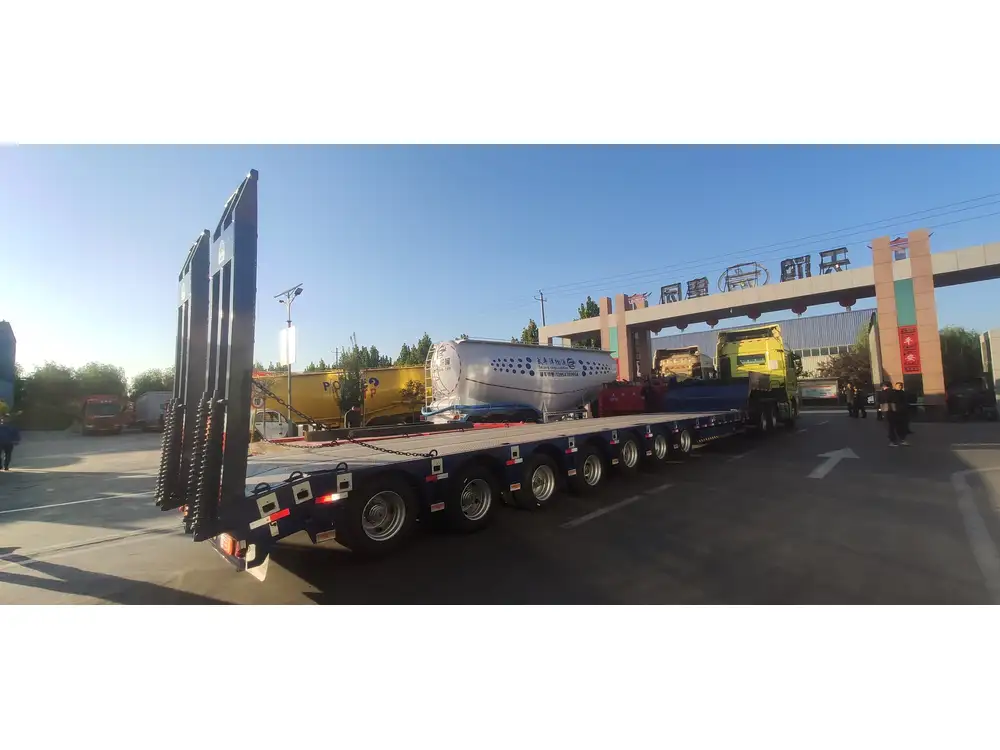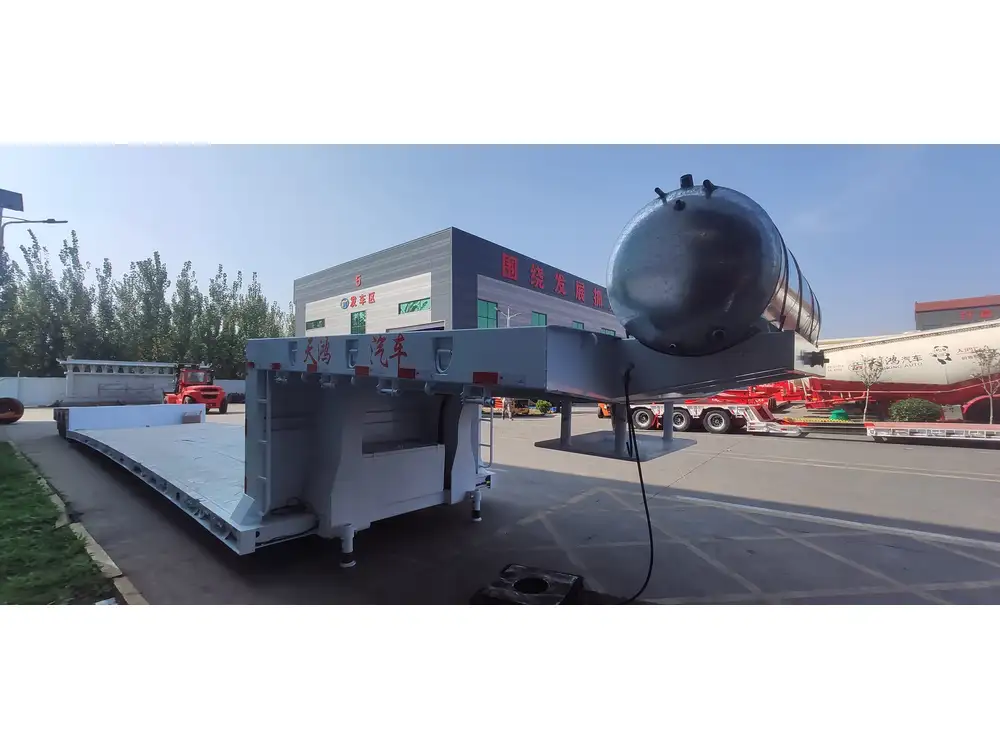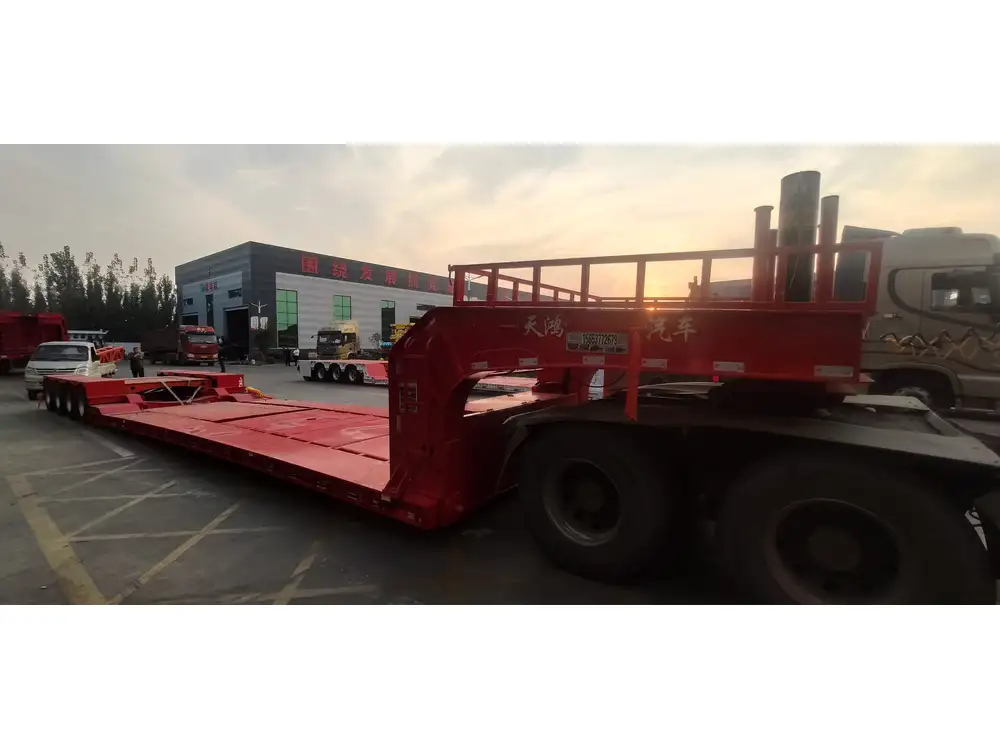When it comes to selecting the right dump trailer for your hauling needs, understanding the weight specifications is crucial. A 20-yard dump trailer, popular for its versatility and capacity, plays a significant role in both professional and personal hauling tasks. This comprehensive guide will analyze the weight parameters, the implications of trailer weight, and other critical considerations when choosing a 20-yard dump trailer.
What is a 20 Yard Dump Trailer?
A 20-yard dump trailer is designed to carry substantial loads, often utilized in construction, landscaping, and debris removal projects. These trailers can typically accommodate up to 20 cubic yards of material, whether that comprises gravel, dirt, debris, or other materials.
Key Dimensions and Capacity
- Load Capacity: Generally ranges around 14,000 to 20,000 pounds, depending on the manufacturer. The capability to carry this weight depends on the materials used in construction and the trailer’s design.
- Interior Dimensions: Commonly features a width of approximately 7 to 8 feet and a length of 12 to 14 feet, allowing for versatile loading options.
- Height: Dump trailers are usually around 4 to 5 feet tall.

Construction Materials
The build quality of dump trailers varies, influencing their weight. Common materials include:
- Steel: Offers strength and durability, generally adding to the overall weight.
- Aluminum: Lightweight and resistant to rust but may have a lower weight capacity.
- Composite Materials: Emerging materials provide weight savings with reasonable strength.
How Much Does a 20 Yard Dump Trailer Weigh?
The weight of a 20-yard dump trailer can fluctuate based on several factors such as:
- Manufacturing Materials: Heavier steel trailers weigh more compared to their aluminum counterparts.
- Design Features: Additional accessories or reinforcements can add weight.
- Brand Variations: Each manufacturer produces trailers with unique specifications.
Average Weight Range
On average, the weight of a 20-yard dump trailer can range from approximately 3,000 pounds for lightweight models to 6,000 pounds or more for heavier-duty trailers.
| Trailer Type | Estimated Weight (lbs) | Load Capacity (lbs) |
|---|---|---|
| Light Duty | 3,000 – 4,500 | 7,000 – 10,000 |
| Medium Duty | 4,500 – 5,500 | 10,000 – 15,000 |
| Heavy Duty | 5,500 – 6,500 | 15,000 – 20,000 |

Importance of Understanding Trailer Weight
Understanding the weight of a 20-yard dump trailer is essential for multiple reasons:
1. Towing Capacity Compatibility
- Vehicle Specifications: It’s vital to match the trailer weight with the towing capacity of your vehicle. Exceeding this capacity can lead to dangerous driving conditions, including decreased control and increased wear on your vehicle.
- Legal Regulations: Different states impose restrictions on the total weight a vehicle can tow. Ensure compliance with local laws to avoid fines.
2. Payload Considerations
Understanding how much your dump trailer weighs allows for proper payload calculations:
- Gross Vehicle Weight Rating (GVWR): This figure combines the trailer weight and maximum load capacity. For example, if a trailer weighs 5,000 pounds and has a GVWR of 15,000 pounds, the maximum payload is 10,000 pounds.

3. Operational Efficiency
Knowing the weight helps in planning load distribution, stability during transport, and overall operational efficiency.
Choosing the Right 20-Yard Dump Trailer
When selecting a 20-yard dump trailer, several factors must be considered, especially concerning weight:
1. Intended Use
- Commercial vs. Residential: If you’re operating in a commercial capacity, you might prioritize durability and load capacity over weight. Conversely, for residential use, a lighter model may suffice.
- Frequency of Use: More frequent use may necessitate a more robust structure that can handle heavier materials over time.

2. Terrain Conditions
- Flat vs. Hilly: If operating primarily on flat surfaces, a heavier trailer may work fine. For hilly terrain, a lighter trailer might aid in better maneuverability.
3. Budget Constraints
Basing a decision purely on price without understanding weight implications can lead to overspending or compromising on capability. Balance upfront costs with long-term operational costs.
Maintenance Considerations for Your Dump Trailer
Regardless of weight, regular maintenance is vital to keeping your dump trailer efficient.
| Maintenance Task | Frequency | Purpose |
|---|---|---|
| Tire Inspection | Every use | Ensures proper inflation and tread condition |
| Brake Check | Monthly/Quarterly | Maintains stopping power and safety |
| Frame & Bed Inspection | Every few months | Detects cracks or signs of wear |
| Hydraulic System Check | Monthly | Confirms fluid levels and component functionality |
| Lighting System Check | Monthly | Ensures visibility and compliance with road regulations |

Frequently Asked Questions
1. Can I Increase the Weight Capacity of My Dump Trailer?
Increasing the weight capacity is generally not advisable since manufacturers specify load limits based on structural integrity. Modifying this can lead to safety risks and manufacturer warranty voidance.
2. What Are the Best Brands for 20 Yard Dump Trailers?
Some of the most reputable manufacturers include:
- Big Tex Trailers
- Floe International
- Maxxd Trailers

3. What Is the Maintenance Cost for a Dump Trailer?
Maintenance costs can vary widely based on the usage and care taken. Budgeting around $200 to $500 annually for inspections, parts, and repairs is advisable.
4. Where Can I Buy a Quality Dump Trailer?
Quality dump trailers can be found at specialized trailer dealerships, online marketplaces, and through manufacturers’ websites. It’s beneficial to read reviews and assess warranties offered.
Conclusion
Understanding how much a 20-yard dump trailer weighs is vital for any purchaser to ensure both compliance with safety regulations and the operational efficiency of hauls. Weighing the actual weight against intended use, towing capacity, and payload limits can significantly influence your decision-making process. By analyzing all these aspects comprehensively, we help safeguard your investment while ensuring you’re fully equipped for successful transportation tasks today and in the future.



